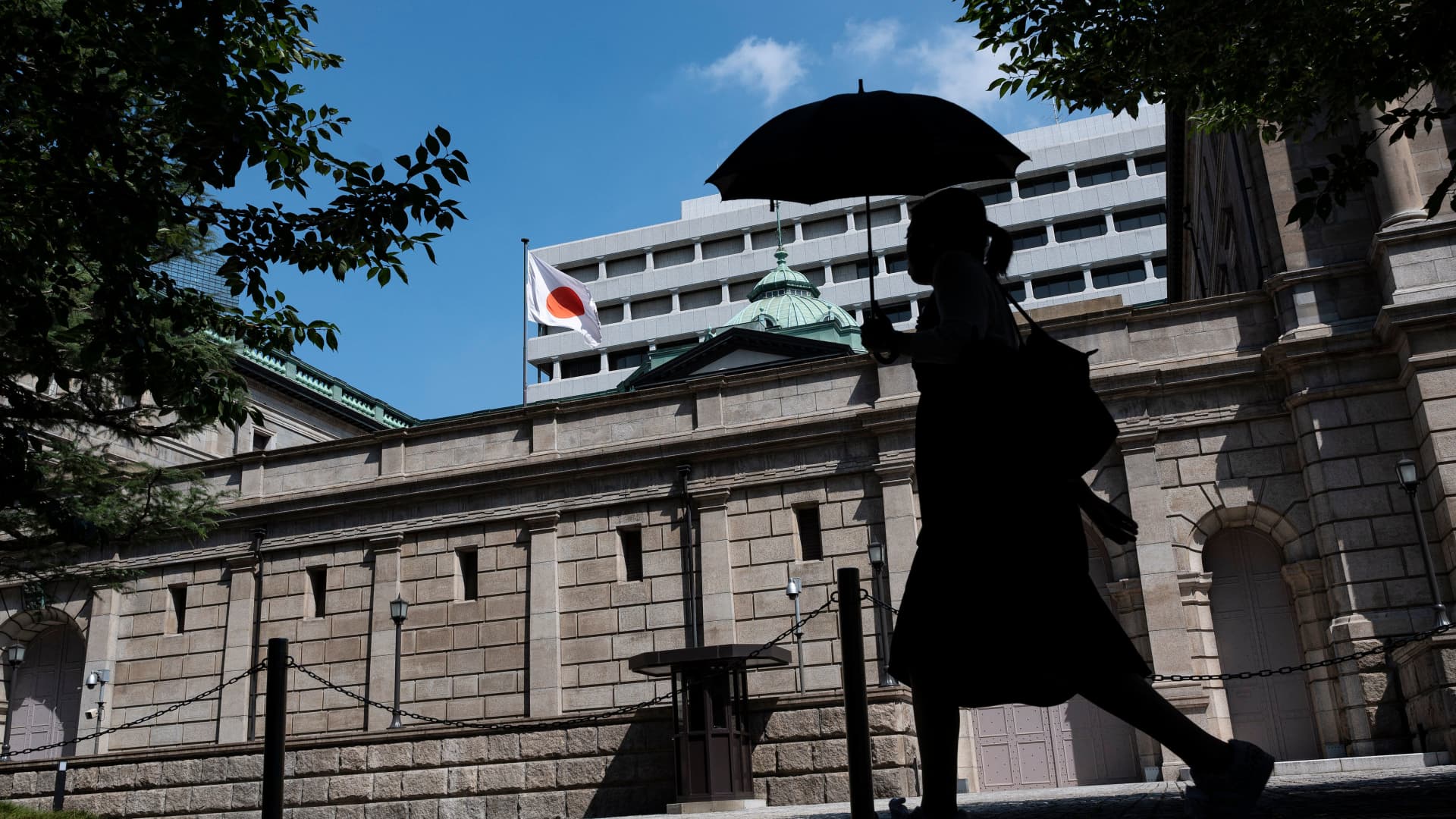European stocks opened lower in early trading on Thursday as a relief rally stalls.
The pan-European Stoxx 600 index was down by 0.5% at 8:30 am London time. Meanwhile, Germany's DAX and France's CAC 40 were also lower by 0.7%. The U.K.'s FTSE 100 is trading flat.
Investors are digesting earnings releases from Unilever, Banco Sabadell, Sanofi, Eni, BNP Paribas and Dassault Systemes.
Regional markets had followed their global counterparts higher on Wednesday as concerns about a trade war between the U.S. and China receded.
U.S. stocks also surged on Wednesday after President Donald Trump said he didn't plan to remove Federal Reserve Chairman Jerome Powell from his post as central bank leader. Market sentiment had dipped in recent days amid concerns that the central bank's independence could have been compromised.
S&P 500 futures rose on Wednesday night after the major U.S. averages posted a second straight winning day, while Asia-Pacific markets traded mixed overnight as a possible thaw in U.S.-China trade war fueled investor optimism.
Adidas posts 17% growth in a tough trading environment
Adidas shares rose by 1.3% after beating growth expectations with sales of 6.15 billion euros ($6.98 billion) for the first quarter of 2025.
Analysts welcomed the 17% organic growth in sales compared to last year during a volatile trading period.
"Overall this is another strong print from adidas and reflects the strong brand heat and continued desirability which makes it slightly more insulated to the external factors," said Deutsche Bank analyst Adam Cochrane in a note to clients.
"Considering the volatile environment, we think that this print should reassure investors, as it underscores the brand's broad-based strength and (we presume) positive sell-through trends alongside less markdowns relative to the previous year," said Metzler analyst Pascal Spano said in a note.
Analysts also pointed out that Adidas' results stand out amid weak results from competitors.
"Results and company/brand momentum continue to be strong in a tough consumer environment no doubt partly helped by weakness at competitors including Nike and PUMA," said RBC analyst Piral Dadhania.
— Ganesh Rao
Anglo American cuts diamond production following lackluster demand
London-listed Anglo American, one of the world's largest diamond miners, has lowered the production of rough diamonds by 11% to 6.1 million carats in the first quarter, the company said in a trading update.
Anglo said the production decline comes in response to a fall in prices for diamond jewelry in light of tepid demand.
"Consumer demand for diamond jewellery in the United States over the year-end holiday season was in line with expectations, however, rough diamond demand in the first quarter remained subdued as the midstream continued its cautious approach to restocking due to excess loose polished diamond inventory," the company said in a statement to investors.
"While there were signs of loose polished diamond prices stabilising towards the end of the quarter, lifting industry confidence, ongoing macroeconomic uncertainty, in particular the impact of US tariffs, will likely result in continued cautious Sightholder purchases in the near term. We continue to manage the business to preserve cash while maintaining underlying value."
The company added that it is still "committed" to a sale of its diamond subsidiary DeBeers, "completing at the right time and when market conditions allow."
Shares have declined by more than 11% in 2025.
— Ganesh Rao
'Bear market rallies are the most violent,' Wolfe Research strategists say
"Bear market rallies are the most violent," according to Wolfe Research macro strategists Rob Ginsberg and Read Harvey in a note published late Tuesday after Day 1 of the latest market comeback.
Tuesday's 2.5% gain in the S&P 500 showed internal markers such as breadth and volume that "were extremely strong, but that's the point of the bear market rally, they make you a believer," the pair wrote.
Because their analysis of longer-term, weekly and monthly trends "continues to suggest that we are in a bear market," Ginsberg and Harvey are looking for "a cluster" of signals to shift direction before declaring the bear dead. Those include a turn in the three-month rate of change and for the S&P 500 to climb above short-term resistance levels between 5500 and 5700.
The S&P 500 closed Wednesday at 5,375.86.
— Scott Schnipper
Market hasn't fully priced in a recession yet, Deutsche Bank says
While uncertainty stemming from President Donald Trump's new tariffs have certainly fanned recessionary fears in recent weeks, the market hasn't fully bought into the idea, according to Deutsche Bank.
"It's clear that investors aren't fully pricing a recession in just yet," wrote strategist Henry Allen. "After all, the equity declines have been shallower than recent recessions, as have the widening in credit spreads and the declines in oil prices. So markets clearly don't see a recession as inevitable, particularly if the tariffs don't come into force after the latest 90-day extension."
On the flip side, investors not fully pricing in a recession means that stocks could see "significant downside risks" if an economic downturn does indeed materialize.
— Lisa Kailai Han
European markets: Here are the opening calls
European markets are expected to open in flat to mixed territory Thursday.
The U.K.'s FTSE 100 index is expected to open 6 points higher at 8,404, Germany's DAX flat at 21,933, France's CAC 2 points lower at 7,475 and Italy's FTSE MIB 53 points lower at 35,942, according to data from IG.
Earnings are set to come from Unilever, Banco Sabadell, Sanofi, Eni, BNP Paribas and Dassault Systemes. Data releases include French consumer confidence and EU new car registrations.
— Holly Ellyatt

 1 month ago
120
1 month ago
120




























 English (US)
English (US)